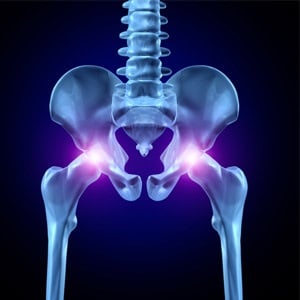
Pain evolved to make creatures terminate damage to the body and rest in order to allow healing and prevent further damage. Pain is unpleasant and focuses the mind intensely, often making other activities impossible. Suffering is the emotional experience accompanying pain and is the worst part of pain. It is the suffering from pain that we, as humans, fear.
Pain behaves strangely. For example, sudden or horrendous injuries may cause no pain, while comparatively minor injuries can cause great suffering. Furthermore, pain can sometimes persist beyond healing of the primary injury. Pain is also usually the major symptom of destructive inflammatory diseases such as rheumatoid arthritis and osteoarthritis.
Is there scientific evidence that pain relief has medical advantages?
Generally pain therapy is neither curative nor life saving, although analgesia does help to prevent deep venous thrombosis, pneumonia and improve wound healing after surgery, while preventing depression and improving the quality of life. However, it is sufficient reason that it is humane to treat pain.
Pain – acute or chronic?
Pain can be classified into acute and chronic pain.
With acute pain there is identifiable tissue damage and the pain resolves as the injury heals over a number of days.
Chronic pain lasts longer than three months and serves no biological purpose.
Chronic pain is further sub-classified into cancer pain and chronic benign (i.e. non-cancer pain). Chronic benign pain includes the pain of joint diseases, neuropathic pain (altered pain responses after healing of the injury) and pain types specific to certain other medical problems.
Pain management principles for acute pain
The principle when treating acute pain is to provide specific potent analgesia until the injury heals by itself. Acute pain diminishes exponentially with each day and therapy must be stepped down from the immediate post-operative/ injury period, to the ward period (if relevant) and finally the home period.
There are two principles to follow:
1.) Using analgesics that work at different sites on the pain chain (e.g. morphine like medicines together with simple painkillers) causes synergism of analgesia and reduces side effects through dose reduction of the component drugs.
2.) Avoid pain breakthrough by never allowing analgesia to wane. This may require innovative ways of administering the drug, like patient-controlled analgesia (PCA) where the patient self-administers small doses of medication frequently.
With cancer pain, the pain often worsens steadily. Analgesia is therefore steadily increased over days and months. The prime drug for cancer pain is an opiate (e.g. morphine) and there is no concern for addiction. Constant subcutaneous infusion is best once oral medicines can no longer provide satisfactory pain relief.
With chronic inflammatory and degenerative disease pain such as from osteoarthritis, there may be surgical procedures to the joints that relieve pain. Non-steroidal anti-inflammatories (NSAIDs) are usually the core analgesics in the management of these conditions.
Chronic pain patients are best managed in specialist teams, with the family doctor being a pivotal coordinator and the patient’s first contact for unscheduled consultations. With non-cancer chronic pain, therapy is best focussed on diagnosing the problem accurately and directing specific therapy against the disease, when possible.
In summary
Despite not being curative nor life saving, treating pain is the single most caring act in medicine.
Speak to your doctor for advice if pain limits your activities.
Remember – do not take over-the-counter painkillers continuously for more than 10 days without speaking to your doctor.
Read more:




 Publications
Publications
 Partners
Partners















